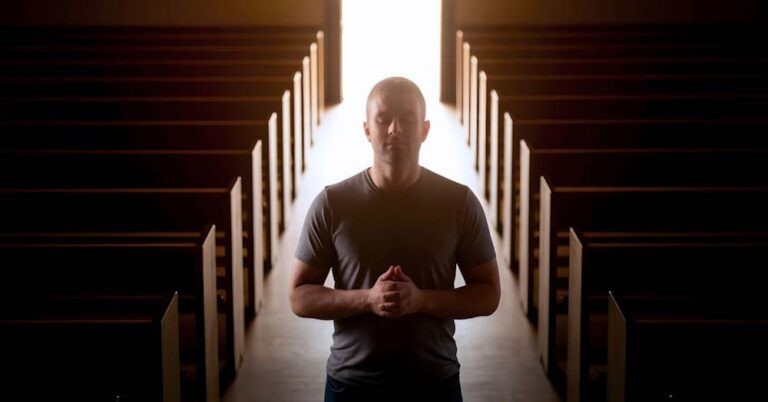In soccer, a team is said to be as strong as its weakest member. One weak player can significantly impact his team’s efficiency, as his teammates will have to compensate for his weakness.
Don’t Forget About Defense, Middle, and Offense
If a team has a weak offense, it won’t be able to score as many goals. Similarly, a weak center will decrease the number of passes from defense to offense and they won’t stop the opponent in the midfield. And a weak defense will put more pressure on the goalkeeper. Finally, a weak goalkeeper is likely to prevent fewer goals.
In life, as in soccer, we are also said to be as strong as our weakest link. For example, if we have weak health, it will affect us financially, socially, and in our relationships. If we don’t have enough money, this may affect our health, social life, and a number of things we can do daily. The same is true for any other part of our life. Thus, while we all have certain strengths, we should not forget about our weaknesses.

Weakness & Strength Model of Happiness
Indeed, there are two models we need to consider. In the first one, we make the best use of our strengths, while in the second one, we focus on managing our weaknesses. The best place to maximize our strengths is at places where results count, such as at work and school. The best place to work on our weaknesses is in our relationships, as it is where we need to be vulnerable. Of course, this is not a universal rule, but rather a guideline, because different situations will call for different skills.
As such, if John is an excellent programmer but has poor social skills, he might get all of his work done, but he can alienate his coworkers in the process. Similarly, in a relationship, we want to be vulnerable, but not all the time. There are times when we want to be strong together with our partner and provide each other with support and companionship.

How Happy Are You On 0 to 100 Scale & Why Does It Matter
And so, we want to find a balance between our strengths and weaknesses, which is where the 50% Rule comes into play. This rule is based on the 0 to 100% scale, by which we can judge all of our skills. A 0% corresponds to not knowing anything about a certain skill, while 100% to being perfect in it. 50% is good enough. It is a passing grade and the minimum score to succeed. The 50% Rule states that we can’t be 100% perfect at everything, but we can and should achieve at least a passing grade of 50% in all six pillars of happiness. Indeed, it only takes one pillar to be below 50% to negatively impact all other pillars, regardless of how well we do in those other pillars. This is similar to that soccer player who brings down the whole team’s efficiency, no matter how many star players there are on that team.
It is not important to know our exact score on the 0-100 scale. Rather, we should really focus on understanding whether we are above or below the 50% mark and what are our strengths and weaknesses. To do this, we can use certain guidelines to find our approximate scores. One way to know if we are below 50% is to listen to other people. If different people consistently tell us that we are failing in something, such as we are chronically procrastinating (Purpose Pillar), we are likely to be below 50% in that aspect of life.

How Much Do You Know About Life, Love, & happiness?
Another way to measure our score is to see how well we know a specific pillar. To do so, all we need to do is to honestly ask ourselves questions like: How to be healthy? how to make money? and how to be happy? The idea here is to see how long we can talk about a certain pillar and how good our references are. Some people can say one or two correct things about a specific topic, while others will speak for hours, but most of what they say is not scientifically accurate.
The highest scoring people in any given pillar are those who took the time to study these specific subjects or they are working in the respective fields. For example, a personal trainer is an expert in the Health Pillar, and a psychologist is an expert in the Emotional Intelligence Pillar. They can talk about these topics for hours and what they say is scientifically sound.
It is not always productive to ask ourselves which areas of life we lack, as we often have a distorted view of ourselves. We think that we perform poorly in some aspects of life, while actually, we are just modest about our strengths. Conversely, when we say that our weaknesses are insignificant to us, everyone else can see how much these weaknesses impair us. In this respect, it can be productive to ask someone we trust what they think we are good at and where we are under performing, being open-minded to their feedback.

Be Honest, But Not Necessarily Perfect
Of course, it is possible to be perfectly honest with ourselves. Deep inside, we know what we are good and bad at, such as when we have obvious signs of obesity (Health Pillar) or when we are experiencing chronic loneliness (Social Pillar). Of course, if we have such problems, we are not experts in these life domains, in which case maybe it’s a good idea to consider some external help. Moreover, it is best to stay away from a perfect score, since rarely someone knows everything about a given topic. Thus, if someone says that they are 100% in something, this should raise some red flags.
And while we can have a less than perfect upbringing, quirky genes, or suffer an unfortunate life event, we can always do something to reach at least 50% in all six pillars. In fact, every day we hear inspirational stories of people who overcome impossible odds—a one-handed person becomes a weight lifter, someone else beats a rare form of cancer, and the ugliest man in the world from Uganda has his 8th child. This last story you have to Google to believe.
These individuals were consistently told they were not good enough in certain aspects of their life, but they did something about it. They didn’t aim at 100% either. They aimed at a good enough score, such as being alive in the case of our cancer patient and finding that one person to marry in the case of the ugliest man alive.

Are Satisfiers Happier Than the Perfectionists?
In both of these situations, people did not aim to become the next fitness supermodels. This is not to say that it would not be possible, but it would require an extraordinary amount of time, energy, and dedication to transform a weakness into a strength. It is enough to be a satisfier and aim at a passing grade of 50% in our weaknesses and to become a perfectionist and try to achieve 100% in our strengths.
On a subject of satisfiers and perfectionists, so-called “satisfiers” are known to be happier than perfectionists, which is not surprising because it is far easier to reach a passing mark than to achieve a perfect score. However, even worse than coming short of being perfect, it is to come short of the passing grade. In school, that would mean we would need to repeat a class, at a job, we could get fired, and in a fight against cancer, it would mean death.
So how well are you doing in your life? Make sure you reach at least the 50% in every domains of it!















